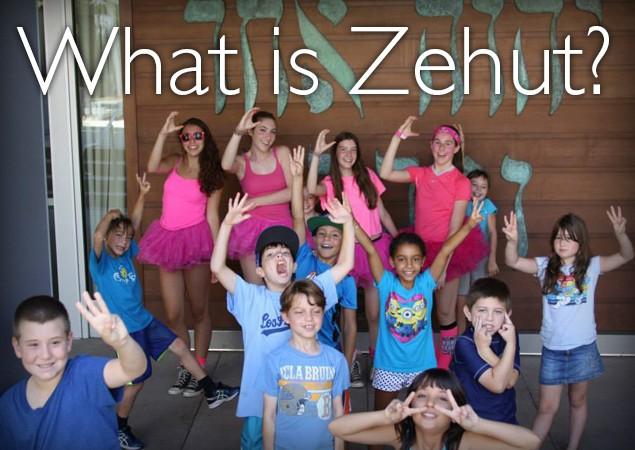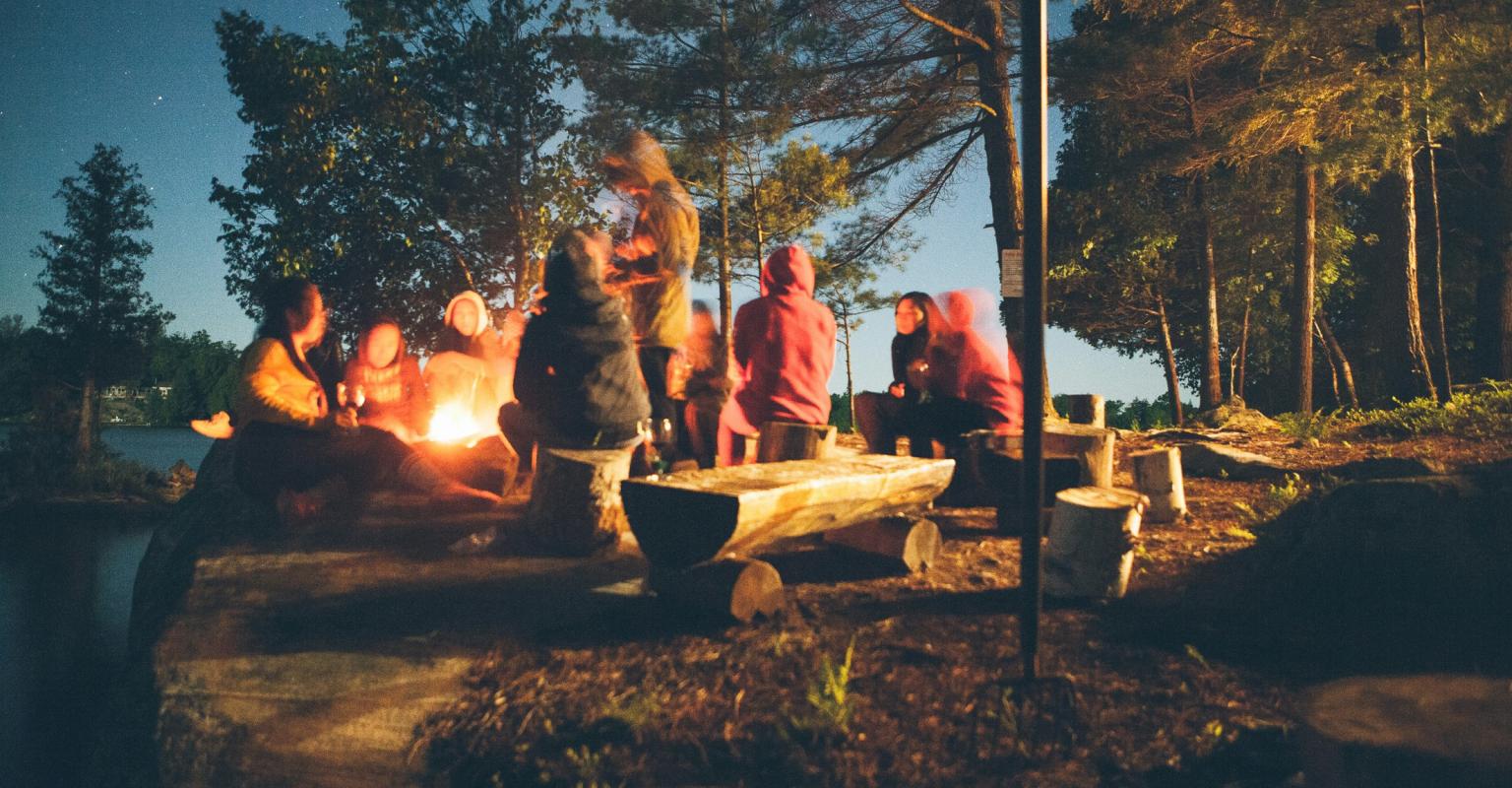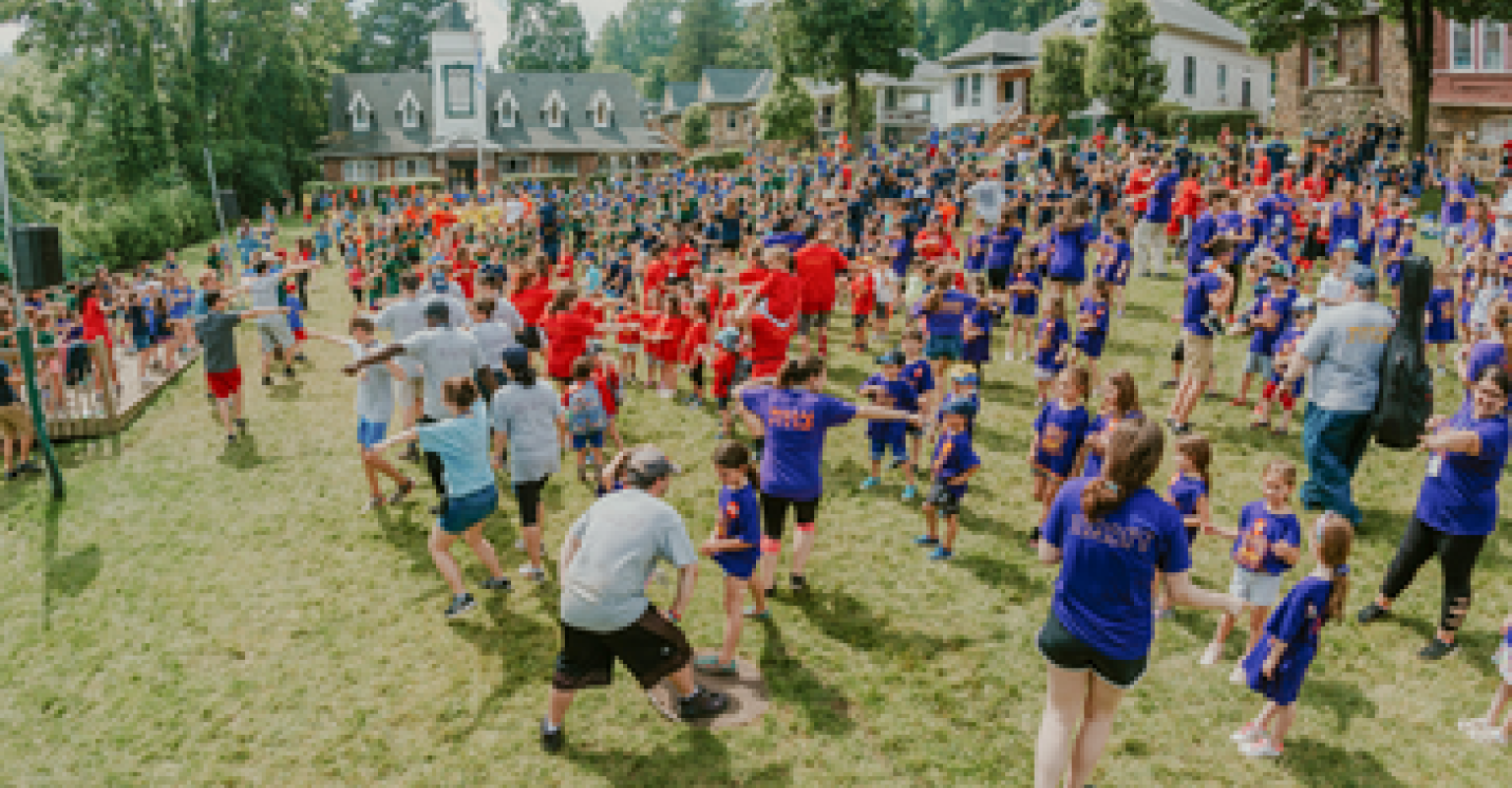Camp/Retreat Model: Nisayon
Temple Judea, Tarzana, CA

Model description adapted from The Express Innovation Guidebook, 2011.
See Update 2016 at the end of this page.
What Were You Trying to Achieve with this Model?
-
When the congregation began the process of determining what new model could work for their population, culture, and setting, they asked congregants to describe their most significant Jewish learning experiences. Out of 450 responses, 400 described Jewish summer camp, Israel experiences, and things they did with their family. The congregation already had a teen Israel trip so it focused on the combination of camp and family experiential learning.
-
Research on camps helped make clear what works in camp:
-
Friendship, a sense of community
-
The intensity of the experience, without external distractions
-
Repetition, doing things every day to make them a part of your life
-
-
The core belief that if the whole family is involved in process of Jewish learning, it will be reflected in home and family life.
-
Learners need an opportunity to create their own memories and their own connections to Judaism.
- Adults enjoy learning with other adults and being treated as adults.
Relationship of Model to Congregational Learning System:
-
Nisayon participants connect to other peers through the youth group and the congregational retreat.
- Some come together around small group Hebrew studies.
Who are the Learners?
-
Parents and their children, grades K-8
-
Nisayon began with 50 learners across K-6th grade and their parents. In years two and three, they had 114 and 203 students respectively from K-7th grade. In the coming year, the model will include students in the 8th grade as well.
- Many of the original parents were people who like camps and were connected to others in the synagogue.
Who are the Educators/Learning Facilitators?
-
Students in 11th or 12th grade or in college serve as Nisayon counselors. Counselors provide the element of ruach (spirit) in the camp. They are the fun, engaging young people with whom the students want to create a connection.
-
The teachers bring formal, credentialed teaching experience in the classroom to Nisayon.
- Nisayon Director
What is the Learning? How is it Designed?
-
Content is organized around a particular theme each year, taking core areas of the religious school curriculum camp-wide. Examples include Israel, Torah, and Mitzvot. The coming year will be Lifecycle.
-
A typical day at camp includes time for learning, tefillah (prayer), various activities, lunch, an opening circle, and closing community time.
-
Family programs begin together followed by adults and children engaging in parallel learning.
-
Adults study with a member of the clergy.
-
K through 7th graders learn with their teachers and counselors from camp.
-
Families then come back together to engage in experiential learning around the theme.
-
Next year, participating in 8th grade students will be involved in a leadership development program.
-
Nisayon is modeled after a traditional summer day camp but with a mix of learning related to the year’s content theme and activities like music, dance, drama, and krav maga. Community building represents another core element of the experience.
- Initially, family programs centered around holidays. Now only two family programs each year focus on holidays, and they rotate from year to year. Additional family programs will be developed thematically away from holidays.
Where Does the Learning Happen?
-
Primarily at the synagogue
-
Nisayon utilizes all available spaces.
-
Some sessions early on take place in the home of clergy (Sukkot) or at the beach (Tashlich).
- Hebrew tutoring for grades 4-6 is either at home or at the synagogue.
When does the Learning Happen?
-
Two weeks of camp in the summer, one week of camp in the winter, Monday – Friday from 9:00 am - 4:00 pm
-
Shabbat dinner and service one Friday night during the summer camp session according to grade level
-
Six family programs on Sunday afternoons throughout the school year
-
Two Yom Machane – Day of Camp – sessions for kids only, from 1-5 pm, one each semester
-
On Parents’ Night Out & Kids' Night In scheduled for January
-
Families can choose between two sessions – Shemesh, at the beginning of the summer, and Yareach, towards the end of the summer – each with a corresponding week of winter camp and family sessions during the year
-
Individual or pair Hebrew tutoring takes place weekly for 45 minutes at the family's convenience
- Small group Hebrew tutoring takes place each week for 90 minutes with several Sunday and mid-week options
What is Inspiring about this Model?
-
A core group, committed to this model, finds multiple ways to be involved in the congregation. They have a deepened Jewish commitment and a deepened connection to the clergy.
-
Nisayon parents make up a significant number of the current adult b’nei mitzvah group.
-
Some Nisayon parents now sit on committees and on the Board of Trustees.
- Children, who come from over 100 different secular schools, know one another.
Key First Steps and Recruitment Plan:
-
Parent meetings are key to marketing for the first year.
-
A core of four or five moms really “sold” the model to their friends.
-
Congregation created a brochure with clear descriptions of the model and a calendar.
- The core group of parents wanted to be sure there were enough learners for the model to get off the ground. The educator felt they needed 50 children in order to make it worth the time and money. The parents made it happen.
Role of Governance and Clergy:
-
No formal governance structure
-
Based on feedback from participants, a parent committee formed to give input into changes in the program. The committee serves an advisory vs. a governance role.
- Parents’ group coordinates welcoming play dates for all new children entering Nisayon.
Budget:
-
Hired a full-time Nisayon director with some additional non-Nisayon responsibilities
-
Recently added a half-time person to provide administrative support
-
Hired part-time specialists for art, music, krav maga, and other activities
-
A 40 x 20 ft above ground swimming pool
- Initially, Nisayon cost $200 less than a regular religious school. In year two it cost the same, year three $200 more and year four will cost $250 more.
Additional Notes:
-
Initially, Nisayon offered only one session. As numbers increased, intimacy decreased as did space; so a second session was offered. The congregation scheduled the summer sessions to avoid interference with regular summer camp dates. Sunday afternoons were chosen for family learning as they posed the least conflict with sports and other activities. Yom Machane- Day of Camp - was offered to address the reality that kids missed being at the synagogue without parents between the summer and winter sessions of camp. Parents’ Night Out & Kids’ Night In allows parents to spend social time with other Nisayon parents and the clergy without their children. Next year the congregation plans to add a family retreat at a real camp for a weekend.
-
Parent feedback continues to guide the evolution of the model. As the numbers grew, parents expressed frustration that intimacy had been lost which led, in part, to the addition of a second session for the model. Parents also began bringing in food to add to the social component of their sessions together with other families. They also pushed for a deeper, richer content level in the learning.
-
The congregation doesn’t want Nisayon to become the only model for Jewish education. It firmly believes that one size does not fit all. In fact, it is in the midst of launching a new, family havurah model for families of 1st graders. The educator frequently refers to the meaning of the model’s name, Nisayon, that is, experiment. The model continues to evolve in order to meet the changing needs of the congregation.
Update 2016:
-
From the Congregation’s website
Our highly successful and groundbreaking alternative religious school program Nisayon is now called “Zehut” – Hebrew for “identity.” In the past decade, Nisayon became the national gold-standard in experiential Jewish education. In the spirit of Nisayon, Temple Judea is once again reimagining Jewish education, this time with Zehut. Zehut will make the entire family part of the fun! - From LA Present Tense Fellows - Rebecca Platt (scroll down)
Z'hoot, meaning "identity" in Hebrew, would redefine the complementary Jewish school experience to combine elements of Jewish camp, family programming, and parallel adult education to inspire and engage the entire family. Z'hoot is a transformation and expansion of Temple Judea's "Nisayon" complimentary school program. It is our goal as a complementary school to move towards an entirely immersive Jewish educational model at Temple Judea, moving away from the "traditional" Sunday complimentary school model towards less frequent but more intensive educational experiences for children and families.
- Models-In-Action
- Intergenerational Learning
- Shabbat
- K - 2
- 3 - 5
- 6 - 7
- After School Programming
- Congregational Learning
- Teen Engagement
- Educator Training
- Family Engagement
Discover more

The Camp/Retreat Model provides learners with intense, immersive Jewish learning environments.

Temple Israel New Rochelle (TINR), NY. Chavaya uses camp language, feel, and a hands-on approach. Students form eidot (communities) to experience chuggim (electives) such as art, drama, and music.

Rabbi Ami Hersh and David Bryfman explore the magic of Jewish day camps.
